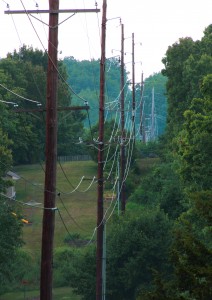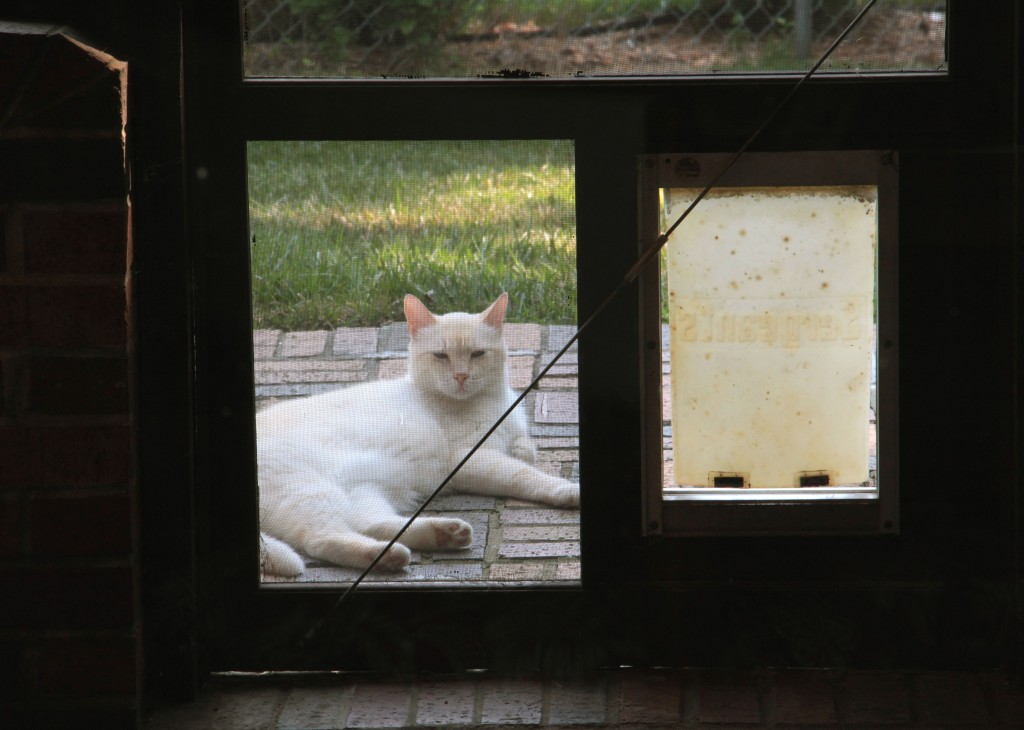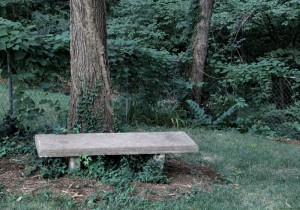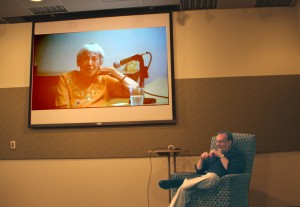Author: Mark Tiedemann
-
Playing Around
I’m trying another new theme. One of these days I may build something all my own…or, at least, watch while someone who knows how to do it builds something for me at my direction.
But I like this one, I think I’ll leave it alone for a while. It’s more in tune with what I like to think myself all about—broad vistas, cosmic scenery, special effects. Well, maybe not so much special effects, but, you know, skiffy.
 From what I have seen so far, I’m very much liking the new WordPress. Of course, that means I’m distracted. This is not the sort of writing I need to be doing just now.
From what I have seen so far, I’m very much liking the new WordPress. Of course, that means I’m distracted. This is not the sort of writing I need to be doing just now.I particularly like this feature, inserting images and adding text alongside. This may be old hat to a lot of seasoned bloggers, but till now I haven’t been able to do it. It’s more the sort of thing I’ve been wanting to do. I have a lot of images that will serve fine as accent, but I don’t want them as the main attraction.
It’s Saturday and once again Donna is at work. Audit season, we don’t see much of one another. For the time being, that’s okay since I do have a book to finish. Once I get done telling you all this, I have to go back to the 1780s and get with it.
I finished the first rewrite for my new agent (in case I haven’t mentioned that previously). The alternate history is out the door. My door. She still has to pass on it and tell me it’s brilliant. Meanwhile, I’m working on the historical mystery, and this week I ran into the chapter from hell. One of those miserable pieces of writing that has a good deal of parts I don’t want to love, but embedded in a marsh of motionless gunk. I finally figured out how to fix it, but it requires throwing a lot of what’s already there in the can, and I am loathe to do it. As this is Saturday and my love is nowhere near (hell, even the dog is out of the house, at the groomer’s), I have no excuse.
So enough. I have a couple of more studied posts I want to do later—one in particular on the new Yes album, which after three weeks I still quite like—and maybe some more political kvetching, of which there is ample to kvetch about. But I must end this playing around now and do some serious work. Really. Right now. I’m going.
Later.
-
Upgrading, Updating, Up-Lating
It’s going to take a long time to fix all the things that need fixing on this new blog. Mainly it’s the images. When I loaded the new theme, the auto-sizing that had apparently been in force (for WordPress 2.0) no longer worked for this version, which is 3.2.1. So I have to go back through and manually resize all the old images. Over the last few years, I’ve put up a hell of a lot of them.
But this version has some nice features for images. It’s tempting to just move forward and not bother correcting all those old posts. Who reads them anyhow?
Someone will. Someday.
So, meanwhile, while I gradually make fixes, I will continue to put up new images, only without the need for…well, corrective surgery.
Hence:
That’s Gabe, our host in our recent long weekend away. (I know, John thinks he’s the master of his abode, but really everyone knows better.)
Along the way we stopped off for some necessary supplies at one of the roadside establishments. Only the best for such a festive trip.
Even without fine dining, it was the more sylvan, pastoral elements of the visit that were the chief attraction. Rest…man, both of us needed rest.
Of course, while we were there we also watched almost all of A Game of Thrones. That was restful. Sure it was. But needful.
As you can tell, I’ve been laying out words just to have an excuse to play with some of the image options, which I really like. I’ll get better at this. Really.
Later.
-
New Website
I’m kind of pleased about this. Anyone who has been keeping up with this blog for any time knows I was involved with an organization called The Missouri Center for the Book. To recap for the benefit of those who are just joining us, the MCB is the state affiliate of the Library of Congress Center for the Book, which is an organization that promotes and advocates for what we call The Community of the Book. That includes authors, sure, but also bookstores, libraries, publishers, bookbinders, even illustrators.
The Center for the Book is not a remedial reading program.
There are plenty others that do that. No, MCB and the other state Centers—and every state has one, plus the Territories—are about the culture of reading. Now, if that sounds snobbish, then forgive me, but it’s anything but. The door is open. Anyone can be a reader. In fact, in this country I’d have to say anyone who can’t read—no, let me be more specific—anyone who doesn’t read and undervalues reading, it’s on them. There’s no excuse. Books are everywhere and while it may be easier to see the movie or go to the mall or whatever else you might do to fill up the time you might spend discovering a great book, to not be part of the Community of the Book is both sad and no one’s fault but your own. At least, that’s my opinion.
I served on the board of directors for nine years. For five of those nine years I was president of the organization. In that time, a lot of work got done and some new things came into being, not least of which is the office of Missouri State Poet Laureate—which MCB advocated for, lobbied, worked, and finally achieved, a program which MCB runs.
I retired from the board this year—last March, to be precise—and there was one thing I wanted to see accomplished that was still hanging fire when I left, something I believed to be vital to the continued health of the organization. Whether we like to admit it or not, the 21st Century is The Future in more ways than I could have anticipated as a 14-year-old science fiction addict reading Asimov and Heinlein and Anderson and Bradbury. The digital age is here and books are changing form if not content. It is not possible to function effectively without participating in that reality.
MCB had a website. We’d had for years and it needed upgrading. We also needed a higher web presence, so the social networking so common today beckoned.
I’m pleased to inform you all that MCB now has a new website. Right here. It just went up in the last week or so. I’d really like to thank Jarek Steele at Left Bank Books for constructing this and agreeing to be admin. He did a spectacular job and as time goes on there will be other goodies. Two regular blogs are projected for it, one for the Poet Laureate, the other of more diverse provenance. You will note there’s a FaceBook link.
(I must also give considerable credit to Diana Botsford, who did an enormous amount of prep work on the previous site making it ready for transfer, found us a new ISP, worked hard to get it up to a point where the project was viable—and then due to the vagaries that life throws at us from time to time had to move on. Diana is a great person. Visit her site, buy her books.)
It’s not often you get to say that you accomplished everything you wanted to in a project, and certainly there are some things I didn’t get to do with the MCB, but I can honestly say I took it as far as I could and did the important stuff I wanted to get done. The new board is going to do some very cool things in the next few years, so I would like to encourage you all to check it out, give it your support, friend the FaceBook page, and bookmark the new site. They’re good people, it’s a worthwhile organization, a vital cause, and a cool thing.
I am going to write some more books.
-
Back
Sorry for the brief absence. It seems my ISP (Earthlink) upgraded their webhosting. One result was to knock my blog for topsy-turvy. The oldest posts appeared first and any new posts ended up at the bottom of the queue. After a few days and phone calls, this has now been resolved. Earthlink upgraded my Word Press for me (an unexpected service) and now I am back.
In the chaos, I lost two posts, but I was able to reconstruct them and repost them, just below this one. The dates are wrong, but the content is there.
The up side is I am now using the latest version of Word Press and it has all kinds of nifty features I didn’t have at my disposal before. I intend to change the theme at some point, but that may take some doing as some odd things have happened to the photographs. But for the time being, for anyone who may have missed me, I am once more up.
-
An Evening With Ursula K. Le Guin
An Evening With Ursula K. Le Guin
Outside the air rippled in the late afternoon heat. Midwest summers get this bad, they do, but we’ve had 95 degree-plus weather now for going on three weeks. Stepping into the air conditioned comfort of the Daniel Boone Regional Library was almost sleep-inducing.
But there was business to attend. Tonight, the 26th of July, was to be a signal event. My interview with Ursula K. Le Guin.
Very SFnal, this. A double-sided flatscreen monitor with a ray-gun style camera on top facing the almost throne-like chair in which I would sit for the evening. On a wall screen to my right Ursula’s image would be projected. I had them switch off the monitor facing me that showed me. Distracting. Besides, it seemed backwards. A blank screen was best.
About fifteen minutes before time, she appeared. We chatted while sound levels were adjusted and framing was set. There was an audience in my room, she had a couple of technicians, a microphone, and a glass of water.
At seven on the dot, an announcement was made that the discussion would be between Ms. Le Guin and myself, without questions from the audience, then, after an awkward moment (we hadn’t actually discussed a signal to begin) I read off the introduction and started talking.
It’s rather hazy now. I admit I was a bit nervous. There are people on the planet who intimidate me, who I hold in awe. Not, often, who one might expect. Ursula K. Le Guin. The name has resonance for me all the way back to…well, I remember when the Ace Specials of The Wizard of Earthsea and The Left Hand of Darkness were brand new. And the book we were discussing tonight, The Dispossessed, is simply one of the finest novels of the 20th Century.
But I remember her smiling and, a couple of times, laughing, and we talked with only a minor pause or two for nearly 55 minutes, and for a space it felt very comfortable, even if we were discussing literary theory and anthropology and so forth. I had planned it out fairly well and did not quite make it to the full hour, but no one seemed disappointed, and I have a warm memory now that I will cherish.
Sometimes this writing life is really very fine.
-
Star Wars and Science Fiction
On Thursday, July 21st,� I gave a talk at the Daniel Boone Regional Library on the nature of science fiction.� I had a good turn-out, the room was almost full, and the talk was generally well-received.
I used a comparison I’ve grown used to deploying, comparing Star Wars to something else and pointing out how it is not science fiction but rather a quest fantasy dressed up like SF, which is not at all uncommon, but can be confusing when talking about the differences that make SF unique.� Normally, this point gets across without too much trouble and for that reason, perhaps, I’ve grown a bit complacent in how I present it.
One person in the audience kept coming back to it, arguing that my definition of what makes Star Wars a fantasy is not sufficiently differentiating to separate it from science fiction.� We went back a forth throughout the evening.� The exchange was fun, respectful, and illuminating, but I still think I failed to address the concerns made.� For one, I didn’t identify the direction from which the objection came well enough.
The question centered around the requirement that SF be about how humans deal with significant changes in the environment around them, causing them to see the universe fundamentally differently than before, requiring them to change.� As stated, all fiction of any worth makes this demand of characters.� No change, no drama.� I put the emphasis on the specifics of the environment—an environment that is changed out of our norm by advances in technology or encounters with aliens or one of the several other motifs SF has deployed in the past, like time travel, telepathy, advanced weapons, faster-than-light travel and so forth.
Well, Star Wars� has all that, so why doesn’t it qualify as SF?
I think I failed to get across that the changes elicited by such things must also be in accord with the nature of the new environment.� The fact is, Luke doesn’t meet that criteria, nor really does anyone else in Star Wars.� Nor do they have to, because the changed milieu in which they move is not acting upon them the way it would in a science fiction novel.
My questioner seemed to be taking the stance that Luke was going through a Hero’s Journey, ala Joseph Campbell’s thesis in The Hero With A Thousand Faces.� Everyone knows, or should know, that Campbell was a close adviser to George Lucas on the first two movies and they conform to Campbell’s mythic analysis.� Why does this make Star Wars fantasy instead of science fiction?� Don’t� SF characters go through a Hero’s Journey?
Well, many do, certainly, but not all, and science fiction really isn’t concerned with reifying those kinds of myths.� And here’s where I fumbled.
Luke Skywalker’s entire journey is destined.� He walks the path he does to fulfill the potential left unfulfilled by his father, making this a story tied to a thick strand of myth that is the same in that film as it was in Aeschylus or Euripedes.� The universe through which Luke moves is functionally no different than the myth-strewn landscape through which Hercules, Theseus, or Perseus walked.� The aliens in Star Wars are not really aliens, but mythic archetypes and racial stereotypes.� Take the whole corpus of Star Wars and drop it into any of the stories of the Age of Heroes and the only things you would have to change are the modes of transportation and the weapons.� Luke doesn’t have to change because who and what he is will not meet the changed conditions of the universe, but because the universe has a predetermined role for him to fulfill and he need only become what he can inevitably become.� The universe in this instance is almost a conscious enabler in a process that has nothing to do with what we know of nature.
Luke’s training is the same as that of any warrior monk of any period of history.� He’s a squire, an apprentice, Obi Wan is a knight, the Emperor is a wizard and Darth Vader his co-opted henchman.� Where have we seen these before?� The universe of Star Wars is a magic quest that sees no reason for anything to change simply because it is different.
Rather than compare it to what it is usually compared with—Star Trek—let’s compare it to something strikingly different.� Blade Runner.� Is there a Hero’s Journey in Blade Runner?� Sort of.� Deckard must go on a quest, meeting challenges, in order to become who he really is.� But the landscape has utterly changed, so when he gets to the end he has not triumphed. All he has learned is that he was lied to all his life and that what he is has no place in the society he has just defended.� And what are the challenges he has faced?� Are they threats to society?� Perhaps, but not in any reifying way.� He has to kill beings like himself who are designed to a purpose and want only to be free of their destiny.� Very much like Deckard himself, who has at the beginning quit the service he finds damaging to himself.
The changed conditions of the environment require him to do what is not in his nature, so there is no fulfillment of potential, only a kind of indentured servitude with the elusive goal at the end of not having to do it anymore.� And at the end what he learns is that his prey is not what he thought it was, that in achieving the ends set for him by society he has perhaps committed a worse crime, a moral crime, and that the reward he sought was intended for someone he no longer believes he is—in fact, he will be hunted down by others now for having learned what he is.
Only another level, just as important, is an argument over the nature of slavery and what is human, deployed in a manner than sidesteps the arbitrariness of personal prejudice—the replicants are Made Objects rather than designated as such by those without empathy.� Like anything else humans make, are they not property?
This is not a scenario easily translated into fantasy—even the Urukai of Tolkein and the Orcs are undeniably evil by virtue of having been made, the idea being that any imitation of nature in such a process is by definition corrupted—because the replicants are individuals, not archetypes, and that’s where the dividing line is.
And finally there is the science thing.� Star Wars depicts a universe wherein science and technology are almost always inferior, usually corrupt, and complete failures at answering the questions posed by nature.� The Force overrides all—dark or light—rendering anything science might do pointless.
The whole point of science fiction from the beginning has been to establish that such ways of seeing the universe are invalid in terms of human potential.� The nature of Nature is not amenable to petitions based on—for lack of a better term—religious concepts of reality, which is ultimately what Star Wars is all about.
What would a genuinely SFnal Star Wars look like?� I’m not sure, but for one thing all those blasters would be laser-sited and no one would miss.� For another, there would likely be no robot slaves (which is what they are)—intelligences at that level would long since have acquired status equal if not superior to the organics life forms around them.� For still a third, there would likely not be an Empire with even the slimmest semblance of homogeneity.
One could go down the list.� The scope and scale of the civilization depicted wouldn’t fit within the narrow confines of the feudal system portrayed.� As for Luke and Leia? Well…
But as to the Hero’s Journey, there are two ways to look at it within this context.� There is the one the hero makes in order to fulfill expectations built into the universe around him—which is the journey Luke Skywalker makes—and this is mythic and religious.� The other is the struggle to find ourselves, our true natures, and fulfill or at least complete the personal journey to become our own selves.� The rest of the universe doesn’t give a damn about this, it is your journey and fulfills no one else’s expectations.� Doing so is its own reward—or, in some cases, punishment—and does not have world-changing consequences.� The former is a fantasy conceit, the latter—well, that’s reality, isn’t it?� And as it plays out in science fiction, it is part of a reality that shares little with fantasy.
-
Treason To The Future
No, I’m not going off on some political rant. At least, I don’t think so. (I was accused recently of using my blog as a soapbox…well, I thought, isn’t that what it’s for? The question is, how good is the soap.)
At our recent Dante session I was reminded of a quote I’d forgotten all about. One of the best philosophical thinkers of the 20th Century was Alfred North Whitehead. I recommend him. Even where I disagree with him, there is plenty to stir the imagination and encourage new thought. One of his better books, quite short and to the point, is The Function of Reason. In the chapter three or thereabouts, we find this little gem.
“To set limits on speculation is treason to the future.”
By that, I read him as meaning that we must be free to speculate about where we’re going, what we hope to do, how we’ll make it happen. All ideas are welcome, even bad ones, as long as we’re only speculating. But more than that, it’s kind of one of those notions that ought to go without saying—all thinking is speculation, even problem solving, and to arbitrarily set limits, to say “You can’t talk about that,” is to shut the door on possible solutions to problems we may not even know we have yet.
I’m using that quote in a talk I’m doing tomorrow night in Columbia on What Is Science Fiction. I think it answers a century-worth of ridicule and criticism toward the form that ought not to have come up to begin with, but which was predictable. People are uncomfortable with change. (Here’s a little bit of politics coming up. Sorry about that.) When you look at the current wrestling match going in the country—indeed, around the globe—there seems to be one basic demand from people with regards to the problems we face: fix it but don’t change anything.
Science fiction is all about change.
There are two ways to look at change—as an inevitable force impossible to avoid or as a fate we seek to hide from. Change is coming regardless, so hiding does no good, but it does do harm, because in hiding we surrender any say we might have in how change happens. And when you do that, then whatever happens will probably be something you won’t like.
Preparing this talk reminded me why I’ve always liked science fiction in the first place. I’ve never been afraid of the future. The future, to me, has always been a place where the best could happen. It might not, things might go sour, but it’s not inevitable, and even if we do go through a bad time, the future is still there, with potential. When I was a kid, Today was always pretty much dull. Tomorrow—and by that I mean TOMORROW! —held all the really cool stuff I knew would make life better. By and large, I haven’t been terribly disappointed. In spite of things transpiring that rather annoy, irritate, and anger me, there is much more that I find generally wonderful.
The trick is to be open to that part instead of stockpiling a list of complaints.
-
Pretty Good July So Far
If anyone is interested, July has been a good month to this point. I’m working on the line edits of a novel, which I hope to have finished by August, and I’m feeling good about the results. The new agent is working me and to good effect.
This past week has been filled with good stuff. We had company for two days, Donna’s sister and her husband, up from Florida, and we ate at an excellent restaurant (The Shaved Duck, should anyone be interested, which I unreservedly recommend) and had good conversation. Friday night Donna and I went to see Tim Minchin at the Sheldon and that was very fun (with the added pleasure of viewing, in the Sheldon Gallery, a showing of photographs by Larry Fink). Last night I played at the coffeehouse, something I do purely for fun once a month, and we tried something brand new that came off fine.
This morning we did our Dante group—we’re on Canto X of Paradiso—and that was pleasurably dense. This after a morning session at the gym where I learned to my pleasant surprise that I’d been pressing (legs) above my all-time heaviest because I underestimated the base weight of the platten. (Leg press at 810 lbs, if anyone is interested.)
This coming week I’ll be doing a talk at the Daniel Boone Regional Library about the nature of science fiction and spending the rest of the weekend in pleasant company. We may be watching Game of Thrones, which I haven’t seen yet, not having cable.
Then the following week I’ll be conducting a teleconferenced interview with Ursula K. Le Guin, which I am anxiously enthusiastic about.
I cannot complain about July. It has been a good month, even if the heat is oppressive (close to hundred today, maybe tomorrow). Oh, and I received the new YES album, Fly From Here, which I’ve now listened to about four times. I think it is fine and I will be writing a long piece about it here, but I have to think about it a little more.
There’s other stuff I know I’m overlooking, but I’ll save it for the end of the month. Instead of complaining, as I often do here, I just wanted to say things are pretty good at the moment. Hope things are well with you, whoever you are and wherever you may be.




